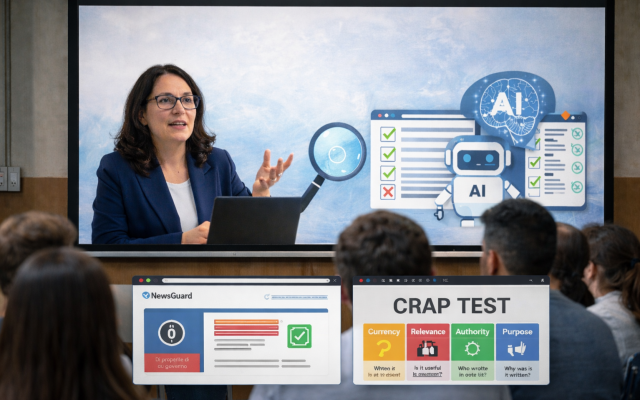Sociologist Mauro Magatti often uses his editorials to urge us to listen to youth, who following the long pandemic period, tend to retract from social life. They are tired of distance learning and don’t attend their lessons. What can be done to help educational communities to support the new generations?
 For Roberta Poli, school psychologist and Professor of Operative Methodologies at IIS Piaget-Diaz , the first distance learning lessons coincided with participation in Project Factor J, promoted in collaboration with Janssen Italia. Indeed, these educational sessions helped create a sense of school community even during the emergency.
For Roberta Poli, school psychologist and Professor of Operative Methodologies at IIS Piaget-Diaz , the first distance learning lessons coincided with participation in Project Factor J, promoted in collaboration with Janssen Italia. Indeed, these educational sessions helped create a sense of school community even during the emergency.
“Usually, after two years of distance learning, the students feel no bonds. They disappear and pay no attention to their classmates and their needs. We often are unable to schedule lessons and courses because we do not know who will be attending courses at school and who will be following the courses from home. There no longer is any direct interaction between classmates and teachers.
Factor J represents a new direction for us, a new milestone, a tool for union and reflection. When we connect and listen to the Factor J sessions and testimonials, I see that the class is involved. And this is what I need, now, to involve the students and make them feel part of a group, emotionally. In the total uncertainty of the period, Factor J provides a bond.”
Factor J is the first curriculum for Italian schools that educates young men and women to develop emotional intelligence, respect and empathy for individuals in great distress or suffering from an illness. It has brough the focus of the educational process back on non-cognitive skills.
“Factor J was a pioneer in what has now become a new sector of teaching: softs skills,” explains Roberta, in reference to the recent bill presented in parliament. “I consider it a true milestone and a skill that any teachers should have. We must only teach content, but also allow students to develop life skills, as Prof. Alfonso Molina has been pointing out for years. Fundamental skills for the future include efficient communication, conflict management, and empathy. Teaching content is important, but to face the world students need tools that will allow them to address what life demands.”
Our projects take into consideration all participants and their different roles. So, teachers are included, too. “Factor J filled me. It strengthened me for what I have always done,” reveals Roberta. “My students will have to work as operators with disabled individuals. Listening to the testimonials of Factor J, allowed me to complete my class work and provide the students with precious tools. The language used and the way in which the project is structured hit the mark and enriched my style of teaching.”



